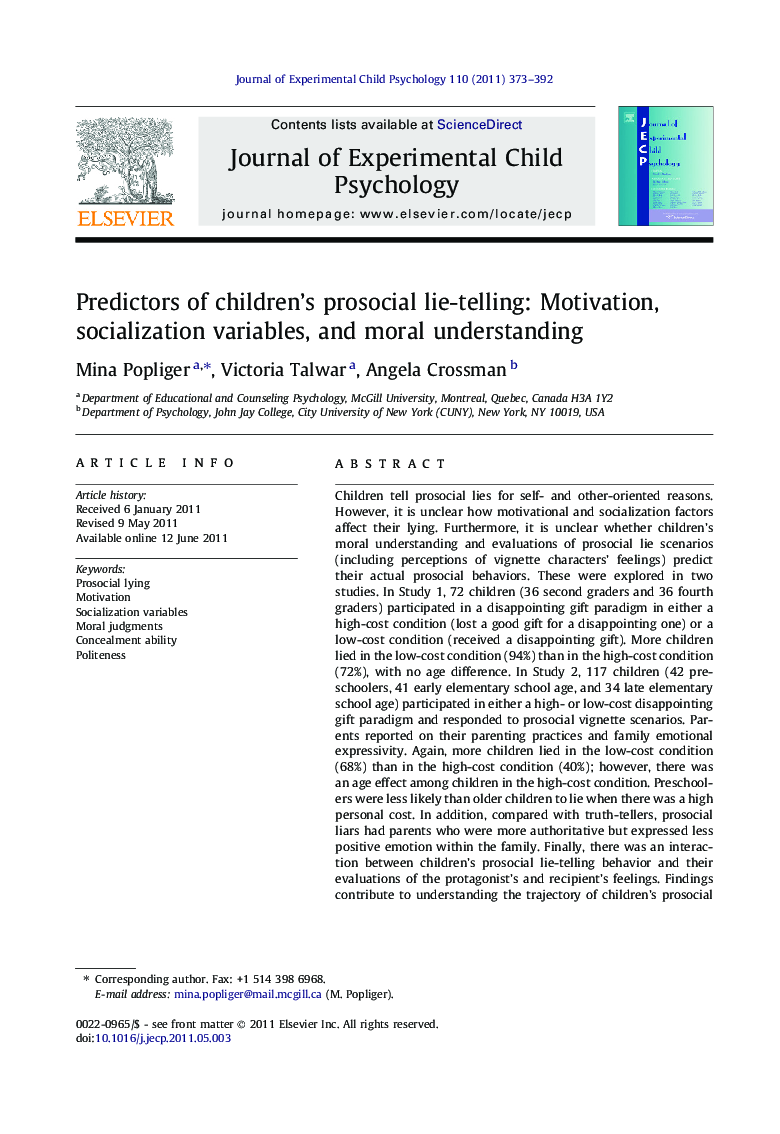| Article ID | Journal | Published Year | Pages | File Type |
|---|---|---|---|---|
| 918409 | Journal of Experimental Child Psychology | 2011 | 20 Pages |
Children tell prosocial lies for self- and other-oriented reasons. However, it is unclear how motivational and socialization factors affect their lying. Furthermore, it is unclear whether children’s moral understanding and evaluations of prosocial lie scenarios (including perceptions of vignette characters’ feelings) predict their actual prosocial behaviors. These were explored in two studies. In Study 1, 72 children (36 second graders and 36 fourth graders) participated in a disappointing gift paradigm in either a high-cost condition (lost a good gift for a disappointing one) or a low-cost condition (received a disappointing gift). More children lied in the low-cost condition (94%) than in the high-cost condition (72%), with no age difference. In Study 2, 117 children (42 preschoolers, 41 early elementary school age, and 34 late elementary school age) participated in either a high- or low-cost disappointing gift paradigm and responded to prosocial vignette scenarios. Parents reported on their parenting practices and family emotional expressivity. Again, more children lied in the low-cost condition (68%) than in the high-cost condition (40%); however, there was an age effect among children in the high-cost condition. Preschoolers were less likely than older children to lie when there was a high personal cost. In addition, compared with truth-tellers, prosocial liars had parents who were more authoritative but expressed less positive emotion within the family. Finally, there was an interaction between children’s prosocial lie-telling behavior and their evaluations of the protagonist’s and recipient’s feelings. Findings contribute to understanding the trajectory of children’s prosocial lie-telling, their reasons for telling such lies, and their knowledge about interpersonal communication.
► Motivation, social factors, and moral understanding predictors of prosocial lying. ► Prosocial lying increased with age, especially when stakes were high. ► Older children best able to maintain lies when further questioned. ► Parenting styles and family emotional expressiveness related to prosocial lying. ► Moral evaluations of vignette characters related to children’s prosocial lying.
